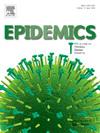基于废水的流行病学,用于 COVID-19 监测及其他:调查。
IF 2.4
3区 医学
Q2 INFECTIOUS DISEASES
引用次数: 0
摘要
在过去几年中,COVID-19 的流行给公共卫生系统和社会经济生态系统带来了巨大压力。为减轻其社会影响,必须积极跟踪 COVID-19 在社区内的流行情况。估算疾病流行率的传统方法是根据报告的临床检测数据或调查进行估算。然而,临床检测的覆盖范围往往有限,而且检测可能需要大量人力,需要可靠、及时的结果,以及一致的诊断和报告标准。最近的研究表明,确诊为 COVID-19 的患者通常会将 SARS-CoV-2 病毒随粪便排入废水中,这使得基于废水的 COVID-19 监测流行病学成为补充传统临床检测的一种可行方法。在本文中,我们调查了有关基于废水的 COVID-19 监测流行病学的现有文献,并总结了该领域的最新进展。具体而言,我们介绍了废水采样、样本检测的关键环节,并对废水数据分析方法进行了全面、有序的总结。最后,我们提出了当前基于废水的 COVID-19 监测研究面临的公开挑战,旨在鼓励新思路,推动基于废水的一般传染病有效监测系统的发展。本文章由计算机程序翻译,如有差异,请以英文原文为准。
Wastewater-based epidemiology for COVID-19 surveillance and beyond: A survey
The pandemic of COVID-19 has imposed tremendous pressure on public health systems and social economic ecosystems over the past years. To alleviate its social impact, it is important to proactively track the prevalence of COVID-19 within communities. The traditional way to estimate the disease prevalence is to estimate from reported clinical test data or surveys. However, the coverage of clinical tests is often limited and the tests can be labor-intensive, requires reliable and timely results, and consistent diagnostic and reporting criteria. Recent studies revealed that patients who are diagnosed with COVID-19 often undergo fecal shedding of SARS-CoV-2 virus into wastewater, which makes wastewater-based epidemiology for COVID-19 surveillance a promising approach to complement traditional clinical testing. In this paper, we survey the existing literature regarding wastewater-based epidemiology for COVID-19 surveillance and summarize the current advances in the area. Specifically, we have covered the key aspects of wastewater sampling, sample testing, and presented a comprehensive and organized summary of wastewater data analytical methods. Finally, we provide the open challenges on current wastewater-based COVID-19 surveillance studies, aiming to encourage new ideas to advance the development of effective wastewater-based surveillance systems for general infectious diseases.
求助全文
通过发布文献求助,成功后即可免费获取论文全文。
去求助
来源期刊

Epidemics
INFECTIOUS DISEASES-
CiteScore
6.00
自引率
7.90%
发文量
92
审稿时长
140 days
期刊介绍:
Epidemics publishes papers on infectious disease dynamics in the broadest sense. Its scope covers both within-host dynamics of infectious agents and dynamics at the population level, particularly the interaction between the two. Areas of emphasis include: spread, transmission, persistence, implications and population dynamics of infectious diseases; population and public health as well as policy aspects of control and prevention; dynamics at the individual level; interaction with the environment, ecology and evolution of infectious diseases, as well as population genetics of infectious agents.
 求助内容:
求助内容: 应助结果提醒方式:
应助结果提醒方式:


